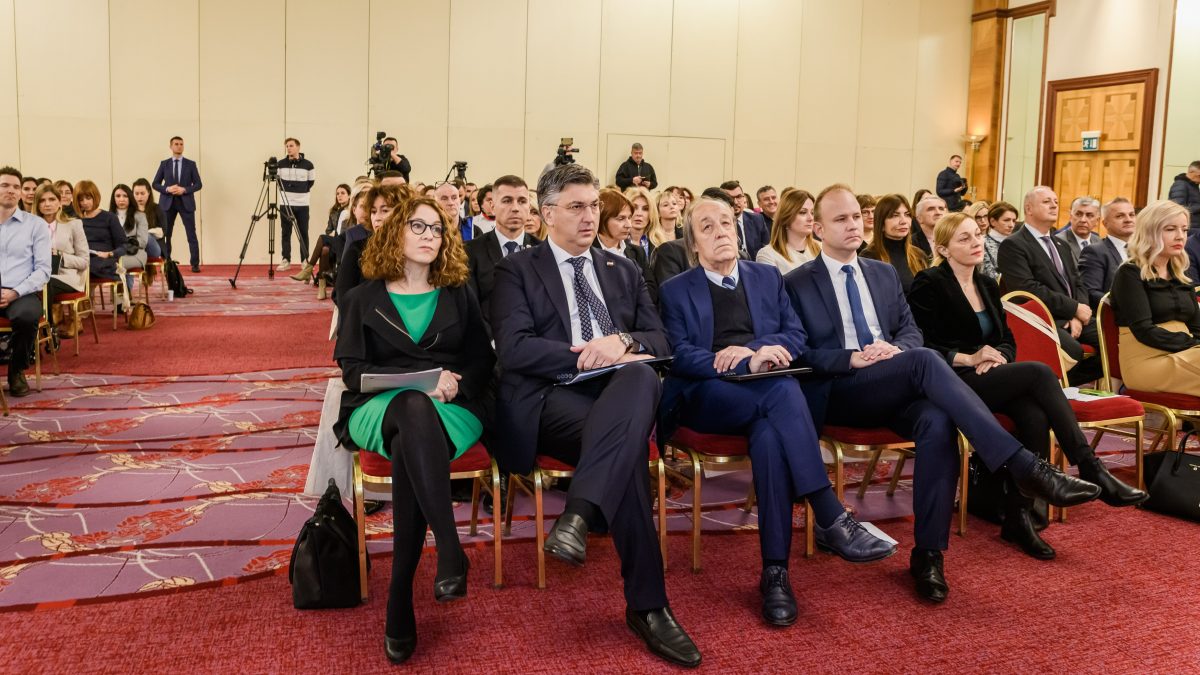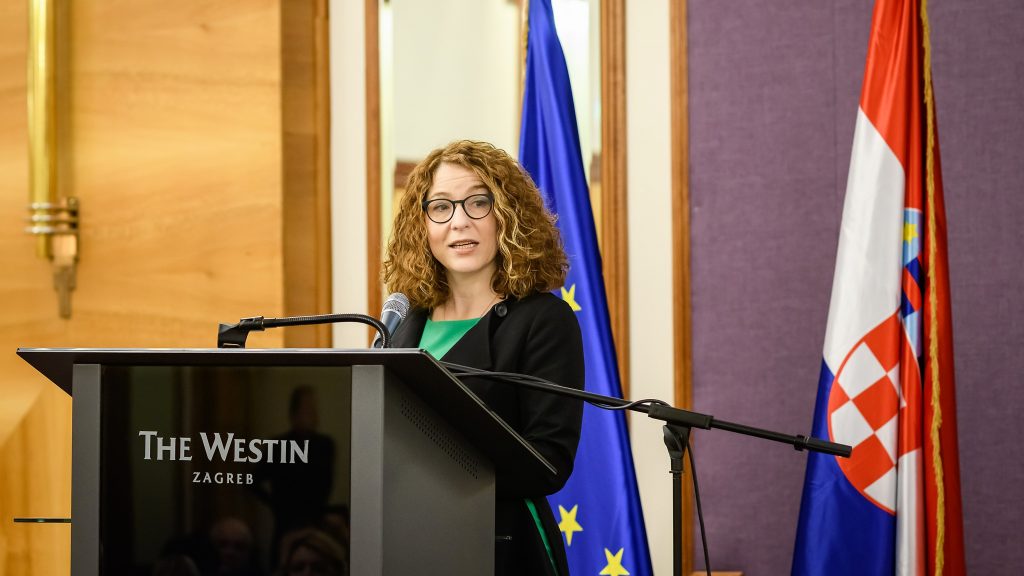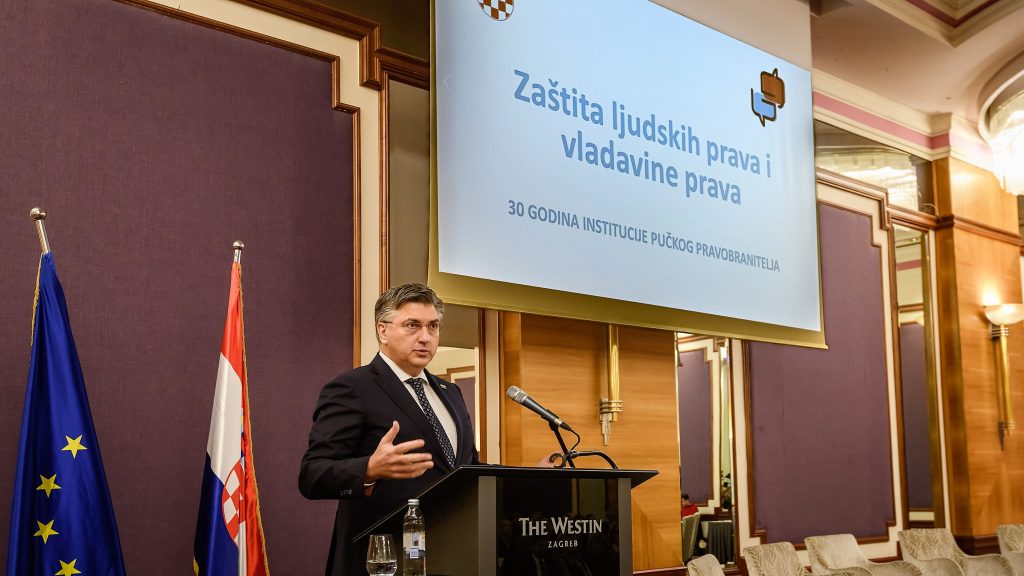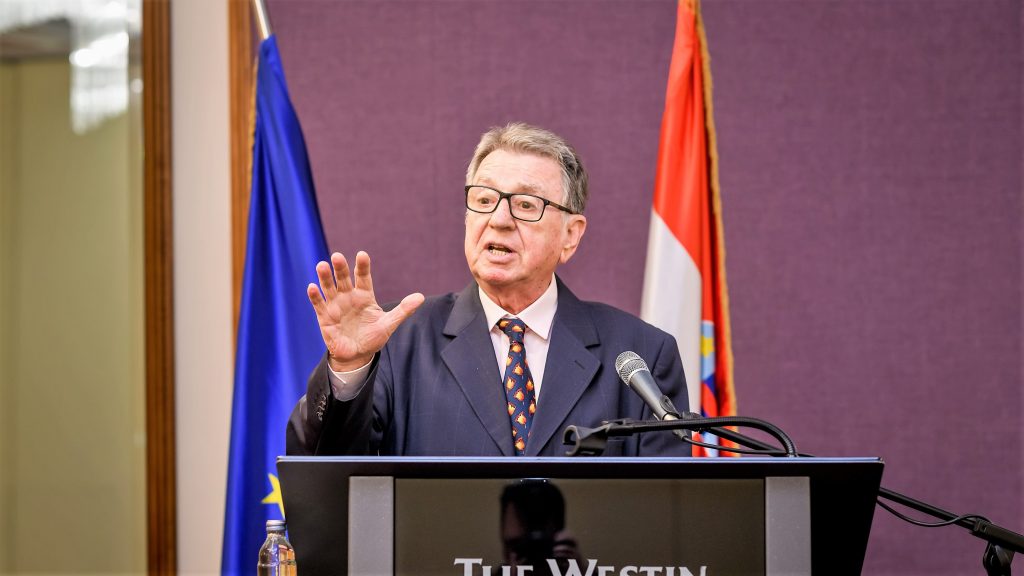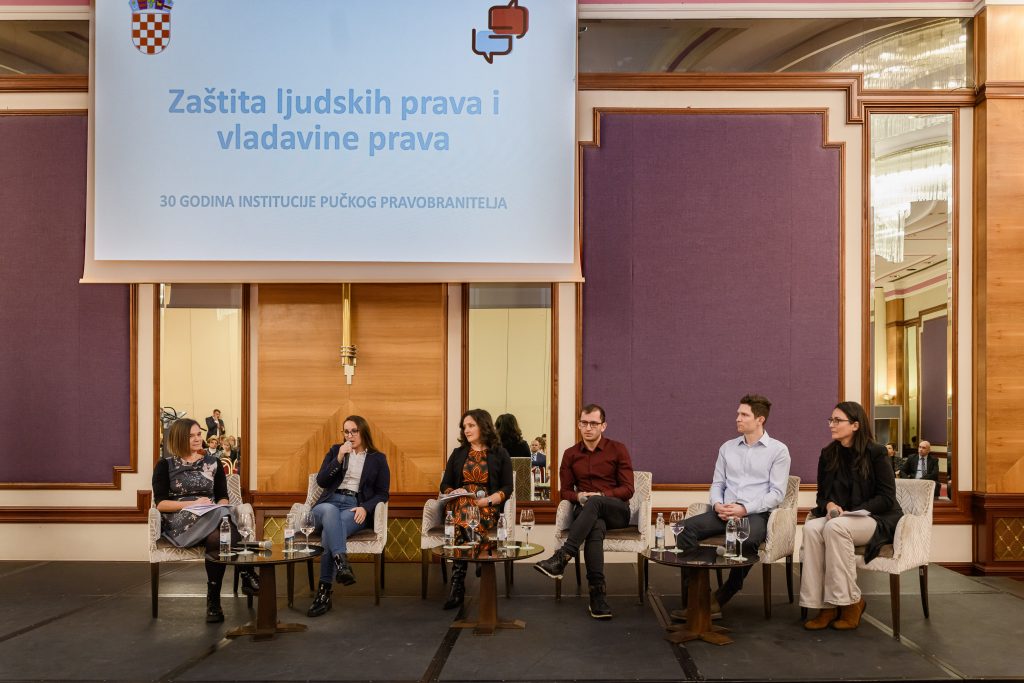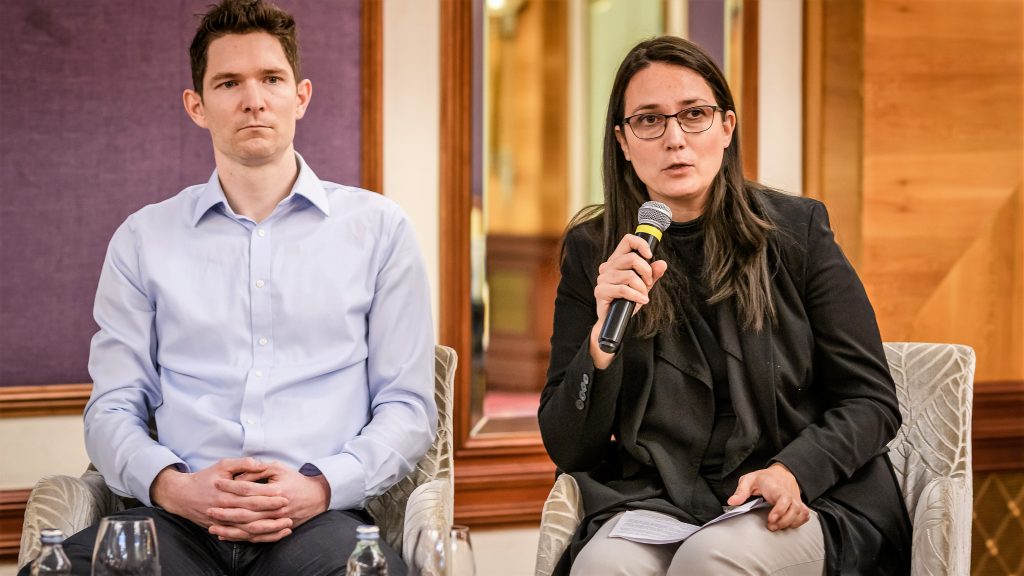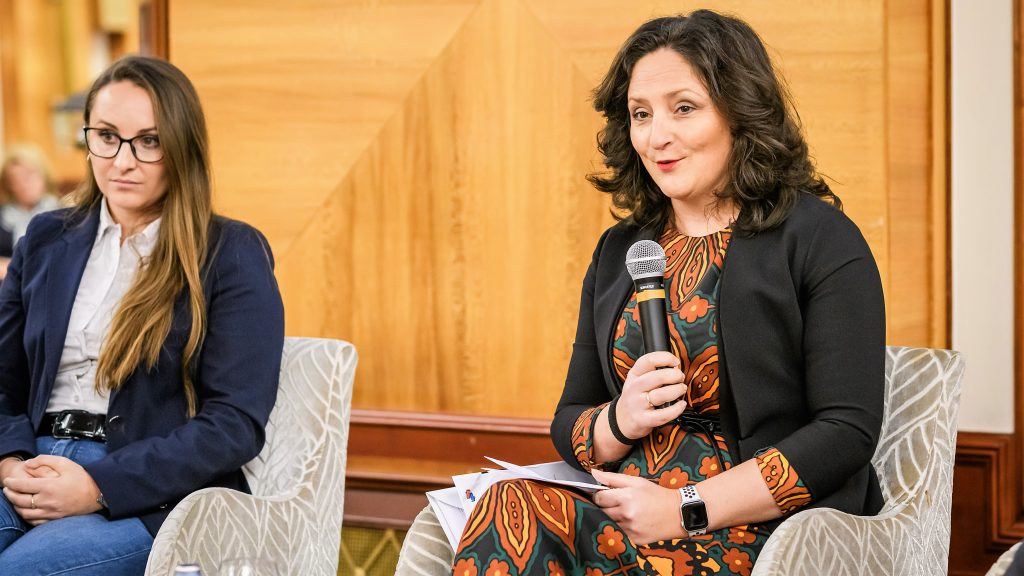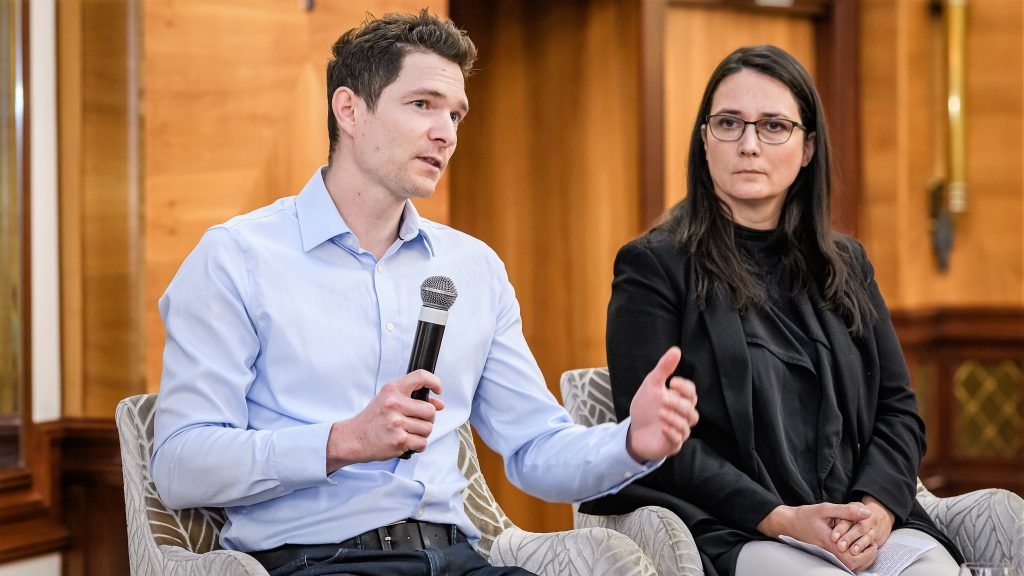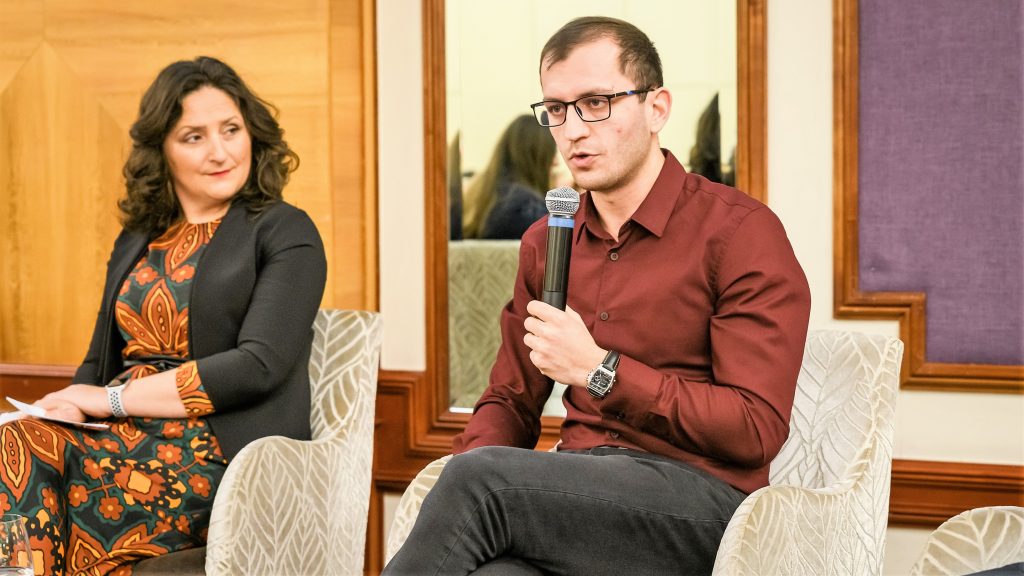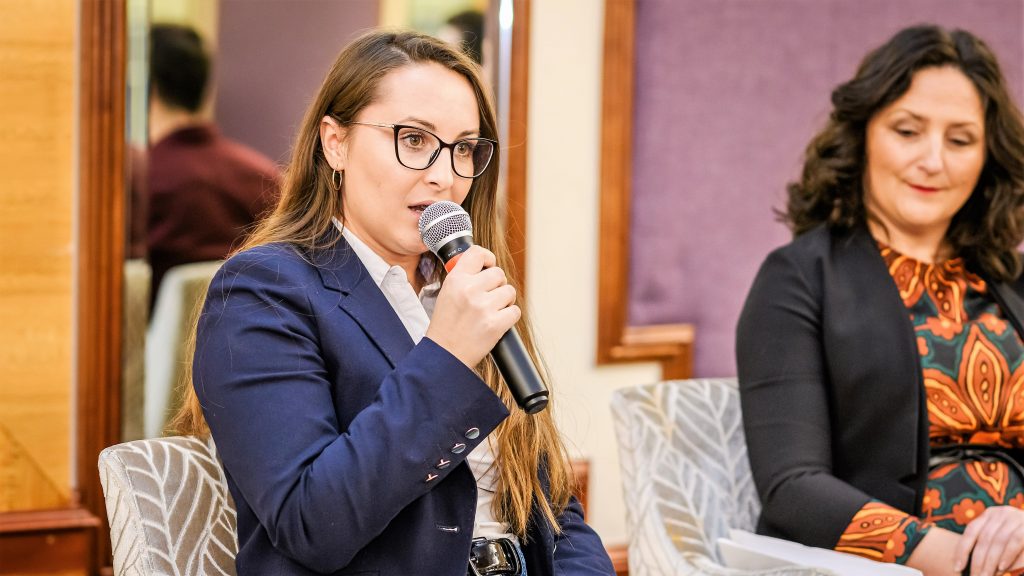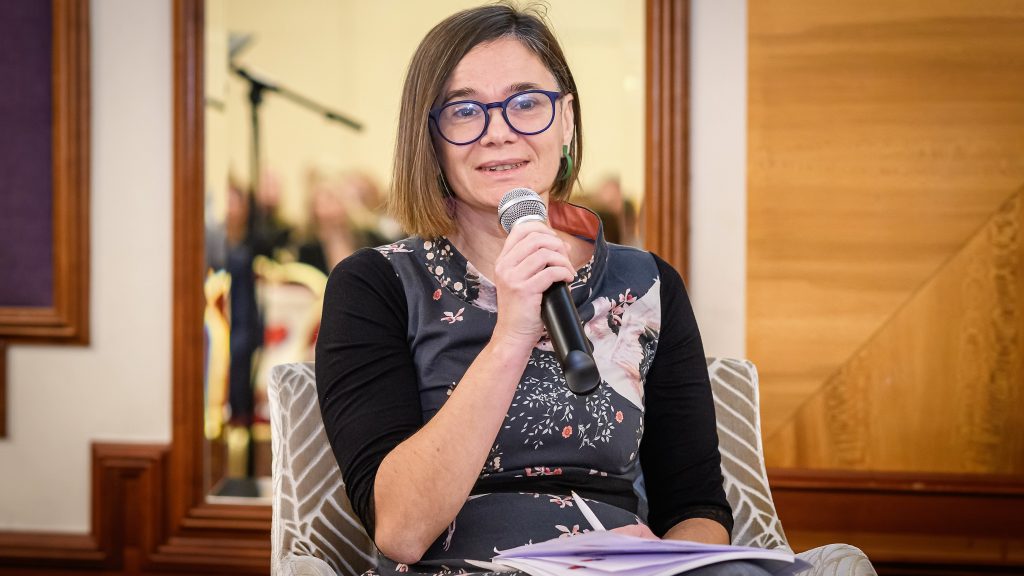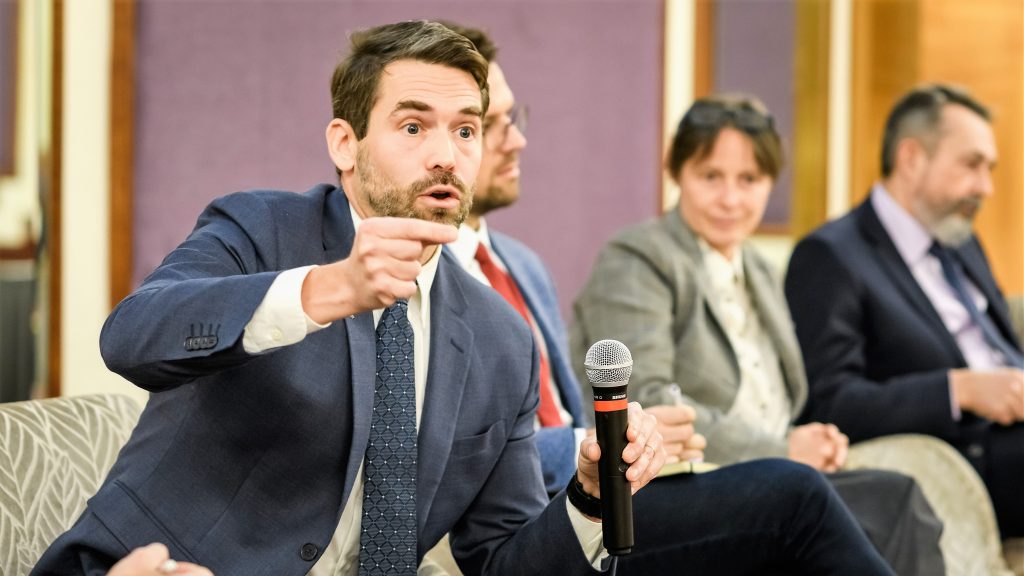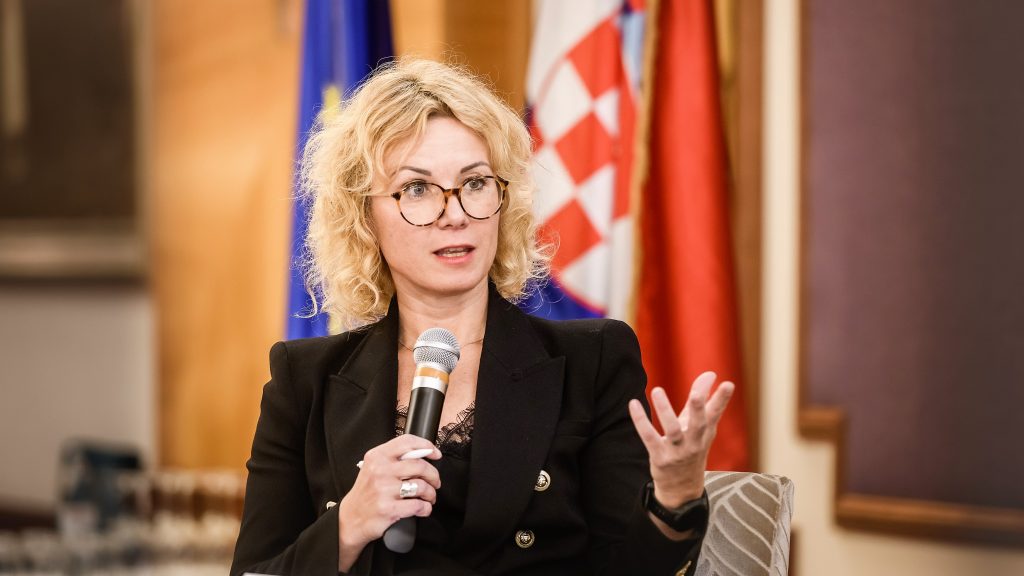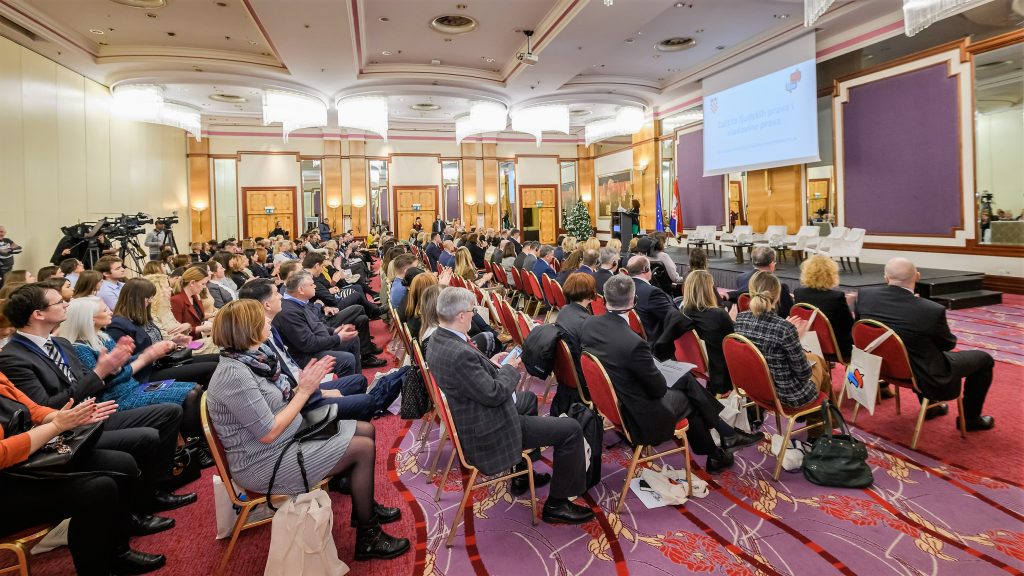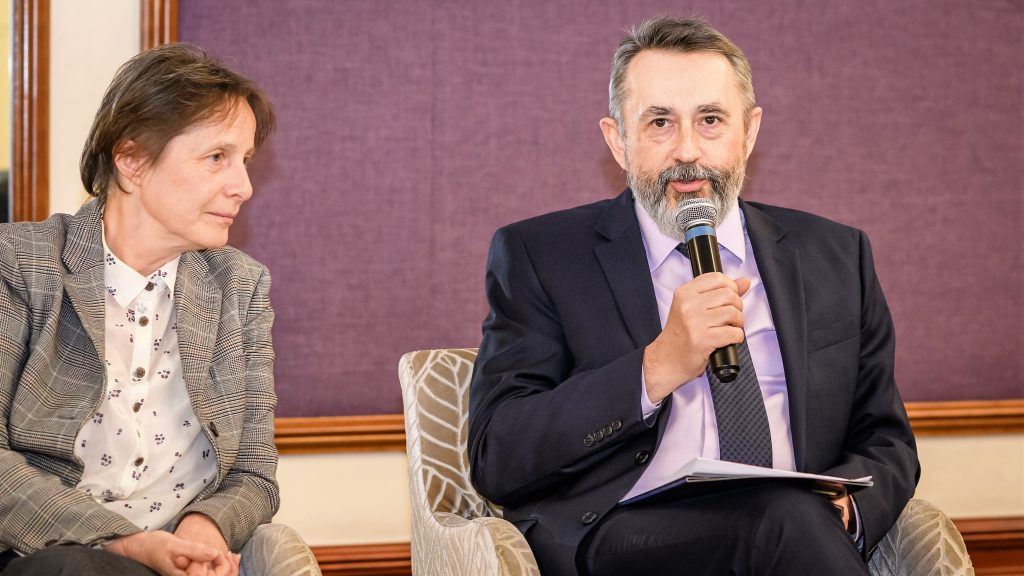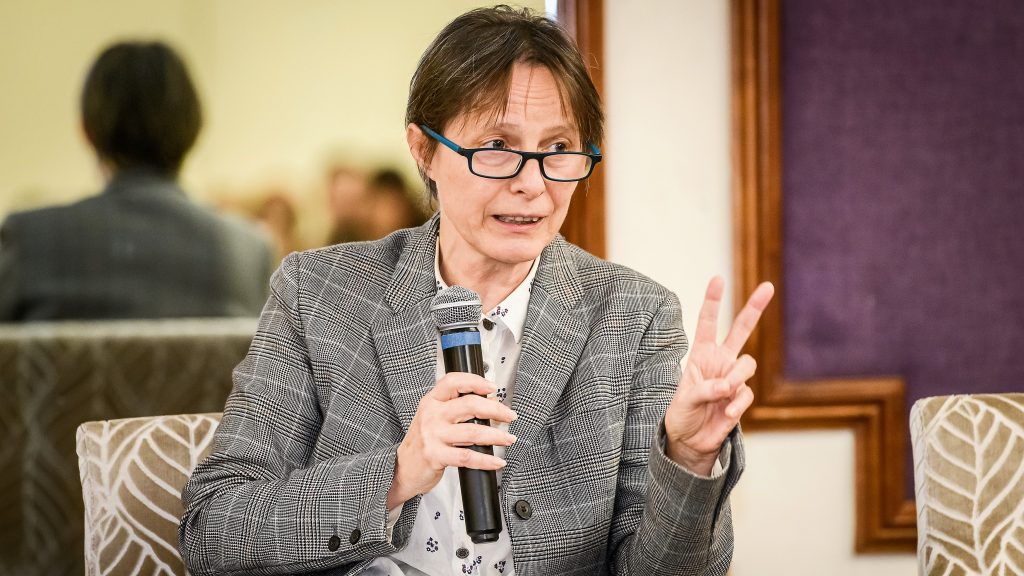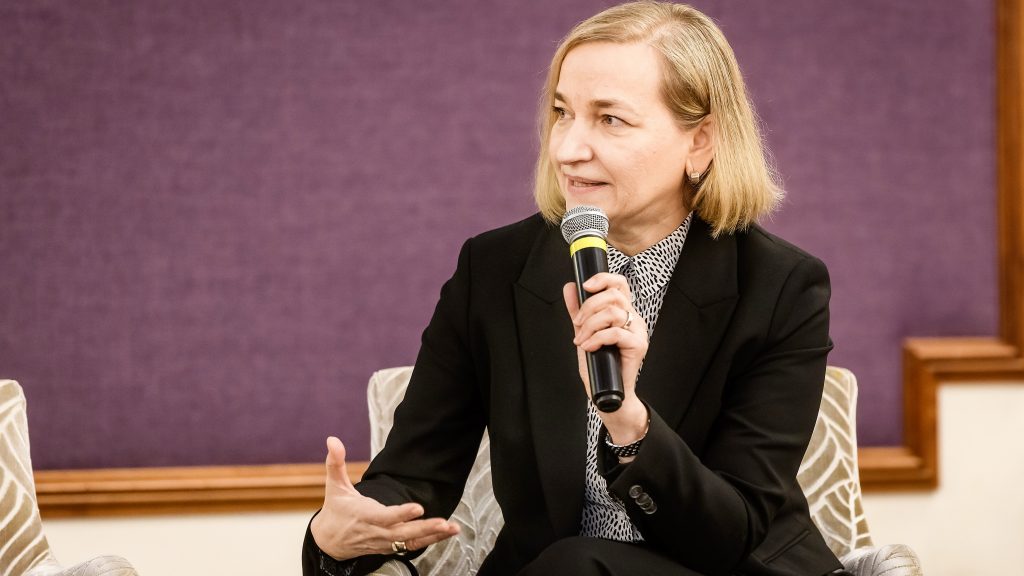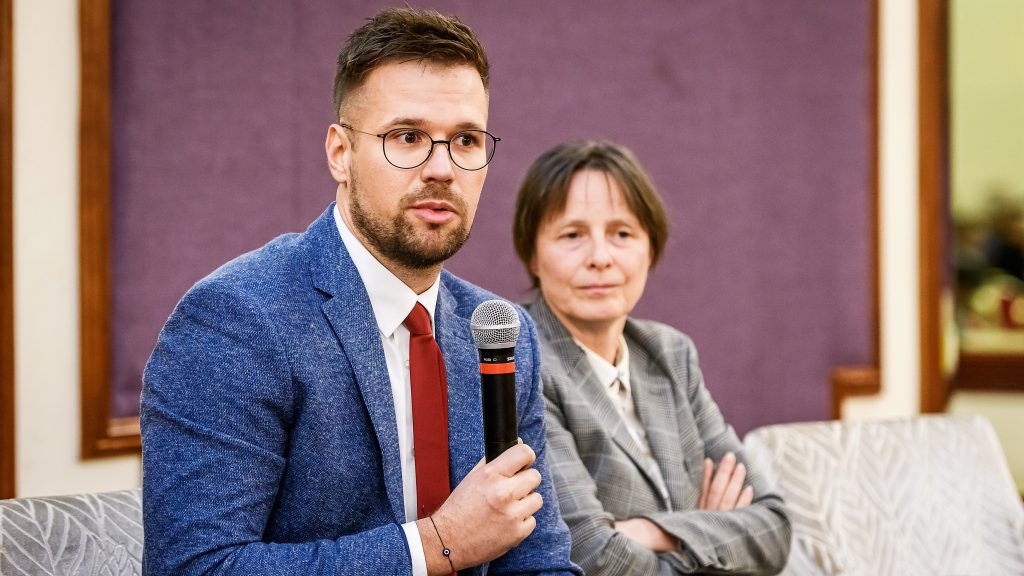On November 30, 2022, we marked the 30th anniversary of the institution of the Ombudsperson. Thirty years ago, the first Ombudsman Act entered into force, and in commemorating this milestone, we placed the focus on people — on the present and the future of human rights and the rule of law in Croatia.
With the conference Protection of Human Rights and the Rule of Law, held on November 30, 2022, we celebrated three decades of the Ombudsperson’s institution. Opening the event, Ombudswoman Tena Šimonović Einwalter expressed gratitude to all former ombudspersons, current and former deputies, and staff of the Office for their dedicated work, as well as to the citizens who have reached out with complaints throughout the years.
She explained that the concept of the conference was not only to discuss the institution itself but also the topics we deal with — the protection of human rights and the rule of law. After an introductory retrospective focused on the institution, the emphasis shifted to the present, through concrete real-life experiences from the field, and in the second panel, to expert visions for the future of human rights and the rule of law in Croatia.
In her opening address, the Ombudswoman first recalled the development of the institution over three decades and highlighted the wide range of topics our work encompasses, as well as the breadth of our responsibilities.
“Today, we are five institutions in one — an institution with no fewer than five different mandates, each of which, in many European countries, would be carried out by a separate body. Thus, we are today:
- the Ombudsperson, dealing with complaints regarding unlawful and irregular conduct;
- the National Human Rights Institution, with the highest level of independence, known as „A status“;
- the Central Equality Body for combating discrimination in Croatia;
- the National Preventive Mechanism for the prevention of torture and other cruel, inhuman or degrading treatment or punishment; and
- the Whistleblower Protection Body,” reminded the Ombudswoman.
She emphasized that a clear, vital, and strong link exists between all these mandates — they relate to the protection of the rule of law and human rights, with independence being key to each.
“Independence is our greatest strength. The more complex, controversial, or political a topic is, the more important that independence becomes. This is why the independence of independent institutions is one of the best indicators of the state of democracy and the strength of the rule of law in a country,” she underlined.
She also stressed that we live in objectively challenging times: a still-present pandemic, the lasting consequences of earthquakes, war in Europe, rising prices and inflation, and at the same time, the climate crisis, a surge in disinformation, and the rapid development of technology with still-unknown effects on human rights. Her vision for the future of the institution includes:
“better cooperation while respecting independence, ensuring conditions for effective work, regular discussions of reports in the Croatian Parliament, and a higher degree of implementation of our recommendations.”
As the envoy of the Speaker of the Croatian Parliament, Deputy Speaker Furio Radin — who was a Member of Parliament when the first Ombudsman Act was adopted — emphasized that the institution was envisioned as:
“an independent body that speaks on behalf of those whose voices are not heard, who are forgotten or lost in the maze of procedures by institutions that are obliged to care for them.”
He noted that over the years, the institution has carried out a very difficult task and developed into a respected, independent, recognized institution, including on the international stage.
Support was also expressed by Prime Minister Andrej Plenković, who thanked, on behalf of the Government, everyone involved in the core mission of the Ombudsperson’s work — the protection of human rights, rooted in democracy and the rule of law.
“I encourage you to continue doing this work professionally and responsibly — to be the voice and protector of citizens, and a corrective to the Government,” said Prime Minister Plenković.
“Fundamental rights mean little if citizens have no effective way to protect them when violated,” he added, highlighting especially the role of the Ombudsperson’s institution, as the body responsible for whistleblower protection, in the fight against corruption.
Following the opening speeches, participants had the opportunity to hear video messages of support from high-level European officials and international partners of our institution — European Commission Vice-President Vera Jourova, Council of Europe Commissioner for Human Rights Dunja Mijatović, Director of the EU Agency for Fundamental Rights (FRA) Michael O’Flaherty, President of the International Ombudsman Institute (IOI) Chris Field, Chair of the European Network of National Human Rights Institutions (ENNHRI) Sirpa Rautio, and Co-Director of Equinet (European Network of Equality Bodies) Anne Gaspard.
The first panel focused on the challenges people face today in realizing their human rights in Croatia.
Moderated by Deputy Ombudswoman Tatjana Vlašić, five individuals shared their personal experiences.
- Rosa Oršuš spoke about prejudice and employment challenges as a young woman — and a young Roma woman.
- Semih Adıgüzel shared his experiences with international protection granted in Croatia and accessing rights in practice.
- Slavica Marčeta from the ADRA Croatia association described various issues faced by earthquake victims in Sisak-Moslavina County.
- Ruđer Novak from the Čisto podzemlje initiative spoke about environmental protection and ensuring access to clean drinking water.
- Tihana Rubić discussed challenges in the care of older persons.
The second panel, moderated by Deputy Ombudswoman Dijana Kesonja, was dedicated to the future. Panelists shared their views and experiences:
- Goran Selanec, Judge of the Constitutional Court,
- Ivan Koprić, Dean of the Faculty of Law, University of Zagreb,
- Ksenija Turković, former judge and Vice-President of the European Court of Human Rights,
- Đurđica Klancir, journalist, and
- Ivan Novosel, Program Director of the Human Rights House Zagreb.
The panel emphasized the uncertain future of human rights and the rule of law, while underscoring the indisputable importance of strong, independent institutions, accountability for human rights violations, and dialogue with citizens and civil society organizations as their representatives. A special emphasis was placed on human rights education.
Closing the conference, Ombudswoman Šimonović Einwalter stated that the greater the challenges of the time, the greater the importance of the Ombudswoman’s institution. That is why, she said, it is crucial to build resilience, independence, and efficiency in stable times.
“I hope that, in all of this — whatever lies ahead — we will have your support,” she concluded.


